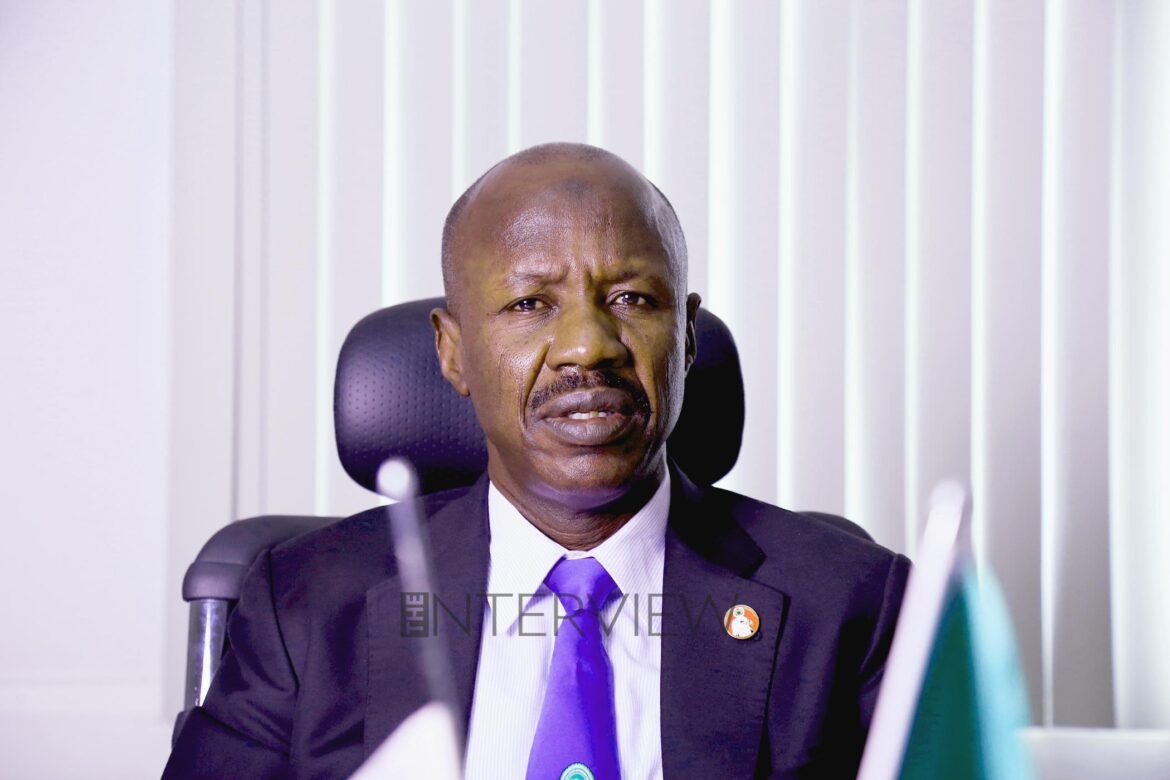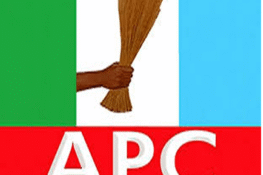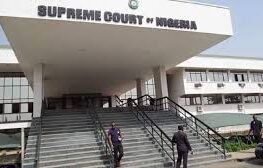It’s a surprise that the acting Chairman of the Economic and Financial Crimes Commission (EFCC), Ibrahim Magu, is still standing.
His appointment had been barely announced when some folks with very long memory of their unpleasant encounter with him in their earlier life stuck the knife in his back; they’ve been twisting it since.
They have been at it now for three years. Just like the title and content of this column this week only slightly amended to reflect the malice of the Magu haters, nothing much has changed.
After working without a letter of appointment and overstaying his confirmation by two years and six months, Magu will be exactly three years on his job on November 11.
The former Director of the State Security Service, Lawal Daura, was the arrowhead of an anti-Magu plot, with a conspiratorial web extending from the corners of the Presidency and the Ministry of Justice to top quarters in the National Assembly.
Daura said in a letter carefully released at the Senate committee confirmation hearing two years ago that Magu was Nigeria’s most dangerous man. The DSS could therefore not recommend him for clearing.
OK, Daura didn’t put it exactly that way – he said, at the time, that there was evidence from eight years ago that Magu took official files home; that he fiddled with recovered assets sometime in his earlier life; that his friend, an air force officer, who was under investigation, paid twice the value of his house rent for him and furnished it; that he flies around with suspects under investigation; and that he even flew first class, against the rules.
“The former Director of the State Security Service, Lawal Daura, was the arrowhead of an anti-Magu plot, with a conspiratorial web extending from the corners of the Presidency and the Ministry of Justice to top quarters in the National Assembly.”
With Senate President Bukola Saraki facing corruption trial at the time, Daura’s letter was exactly the Christmas gift that the lawmakers had been praying for.
So, when Santa Claus delivered it to the Senate committee, the matter did not even go to the whole house, as required by law, before Magu was rejected.
This curious episode reminded me of two things – an aphorism and a story. Lavrenti Beria, the former head of Joseph Stalin’s KGB, loved his job to death and was always eager to show his boss.
Whenever he thought Stalin had difficulties finding a reason to eliminate any of his foes, Lavrenti would go to him quietly and whisper, “show me the man and I will find the crime.”
In three years of doing one of Nigeria’s most difficult jobs, Magu has stepped on so many toes that finding a crime to hang him didn’t need a Lavrenti.
Daura made Magu’s fall his main job paying no heed at all to the fact that he himself was standing on feet of clay. When former President Mwai Kibaki started the war against corruption in Kenya, those who wanted it to fail did more than use aphorisms to fight John Githongo, the anti-corruption czar at the time.
According to Michela Wrong in her book, “Our Turn to Eat,” at first, they ignored Githongo. When he seemed to be getting uncomfortably close to the thieves, who were mostly insiders, they tried to shoo him away. He persisted and sank his teeth into one of Kenya’s biggest scandals – the $1 billion Anglo Leasing case. At that point, the backlash got nasty.
They called him a stooge of the Oyinbo man, especially the donor countries, and to incite the public against him, said he was gay and a traitor to his tribe. They sent stalkers after Githongo and threatened him directly. When he refused to back down, they went after his family.
They suddenly remembered a loan taken by his father who had an accounting firm under former President Jomo Kenyatta and reminded John that his father had not finished paying up. “The minister of Justice was telling me that if I eased off my enquiries, then my father’s loan matter would be made to go away,” Githongo said.
Corruption did not relent until Githongo fled for his life.
Magu is not going anywhere. They have thrown at him the kitchen sink and some more, but I’m sure he knows by now that it comes with the territory. Not one EFCC chairperson since inception has served two terms and Magu has the added distinction of nearly completing his first term of four years without a letter of confirmation!
The EFCC is not a perfect organisation but in the last three years we have witnessed clear and sustained efforts to improve its efficiency, the autonomy granted the Nigerian Financial Intelligence Unit, the improved record of conviction, and the excellent facilities in the new Abuja headquarters, to mention a few.
The war on corruption may still have its rough edges, but Magu has pursued a number of those who pocketed public funds and forced them to pay. He has worked with other institutions to tighten financial controls and plugged leakages through which the country was losing billions of naira yearly.
All of this of course will be good music in the ear of many politicians, as long as Magu is not coming after them or their cronies. With many of them already warming up for 2019, they are genuinely worried that the anti-corruption war may upend their political ambition.
Magu has shown from his devotion and courage that he is a clear and present danger to a number of ambitious politicians and their friends used to easy passes. That’s why they want to stop him.
“The EFCC is not a perfect organisation but in the last three years we have witnessed clear and sustained efforts to improve its efficiency, the autonomy granted the Nigerian Financial Intelligence Unit, the improved record of conviction, and the excellent facilities in the new Abuja headquarters, to mention a few.”
Yet, we can smell mischief in his three years in office. Magu has shown a commitment to work and independent-mindedness that have proved to be a major headache for politicians, their powerful cronies and insiders who would rather have a puppet in that office.
Acting appointments belong to the stone age. As Magu marks three years in office without a letter of appointment, we don’t expect any surprises from the Senate. But that’s precisely where Magu’s freedom lies.
He does not owe the politicians any special favours and is therefore not a hostage to the selfish and narrow interests of those who would exploit an administrative leverage just to get even.
In three years, he has done more for the country than those with dodgy records cleared by the DSS and enthusiastically confirmed by the Senate.
Politicians want to fight corruption; that is what they say. But they want to do so on their own terms. Their biggest regret in the last three years, is that they can’t get Magu to play. And that’s a far greater measure of success for the country than could have been conveyed by any letter of appointment.
To succeed, Magu must remain Nigeria’s most dangerous man.








